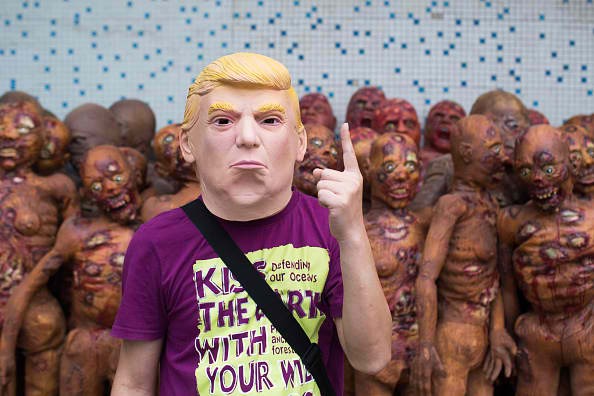A company in China sells high-tech toilets called Trump, which according to its founder Zhong Jiye, is not intentional on their part.
In a telephone interview with The New York Times, Zhong said he registered the English name of his company, Shenzhen Trump Industrial Company Limited, as a trademark in 2002. He also denied knowing Donald J. Trump. He said the company name means "innovate universally" in Chinese, which sounds somewhat like "trump."
"We really didn't know of this person called Trump," Zhong said. "It was entirely a coincidence."
In the U.S., Trump's name is associated with steaks, ties, water and other products, while in China it is stamped on cosmetics, computers and leather goods.
Data from China's trademark office showed that out of the 46 trademarks registered under Trump name, about 29 were owned by Trump. Itaotm, a Chinese commercial trademark website, said that in 2015 and 2016 alone, at least 14 companies not connected with Trump applied for the Trump trademark.
According to the report, this indicates the difficulties faced by big brands and celebrities in dealing with China's new trademark laws.
Under China's laws, the first to file with the government are awarded the trademark, which drives several people to register the names of popular brands in a practice called "trademark squatting."
Several Western companies, such as Starbucks and Apple, have long been embroiled in legal cases to be able to use their name in China.
A Chinese company won a case against Apple in May, for the right to use the iPhone trademark in its leather goods. Michael Jordan also lost his case. A Chinese court asked New Balance to pay $16 million in damages for illegal use of the Chinese name for the company.
"It's very difficult to prove bad faith," Matthew Dresden, a Seattle lawyer who specializes in Chinese intellectual property law, said. "It's very hard to prove that your name is well known at the time that the application is filed."
Trump also lost a case against a businessman from Liaoning Province, Dong Wei, who prevented him from using the Trump name for a construction company, according to the website of China's Supreme Court. But the decision was reversed after the country's trademark office granted on Sunday, Nov. 13, preliminary approval of Trump's trademark for use in construction services.
The report however said that Trump is not the first world leader whose name was dragged in a dispute in China.
In 2004, a Chinese businessman applied for the use of former President George W. Bush's name for a brand of disposable diapers but it was rejected by government officials "because it may bring about bad social impact if a leader's name is registered as a trademark," state media said.
Meanwhile, Zhong, the toilet maker Shenzhen Trump, said that he "will never" give up his trademark, even if Trump decides to take it to court.
"Litigating is his right," Zhong said. "But we will let the government make its judgment. We believe the country's laws will protect businesses like us."
Zhong said likes Trump's "courageous style and spirit of reform," as well as his "innovative ideas."



























